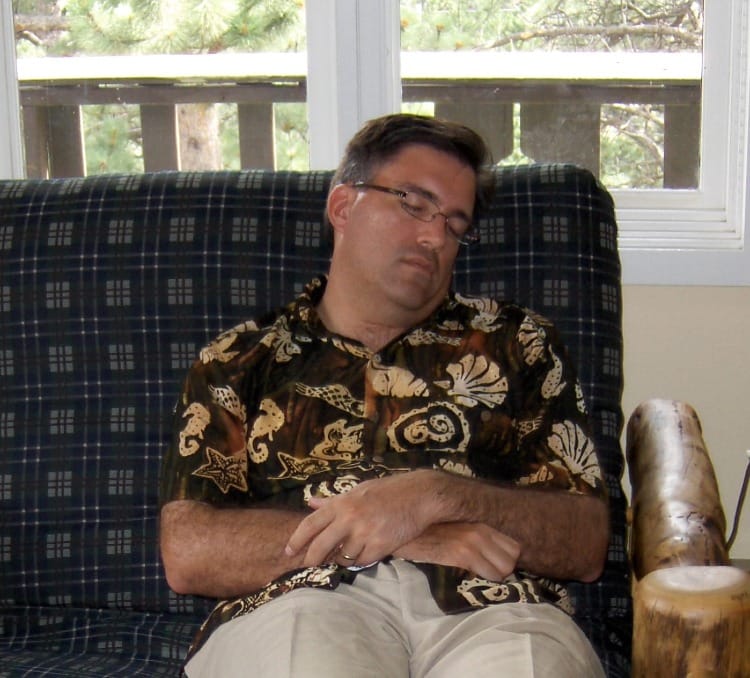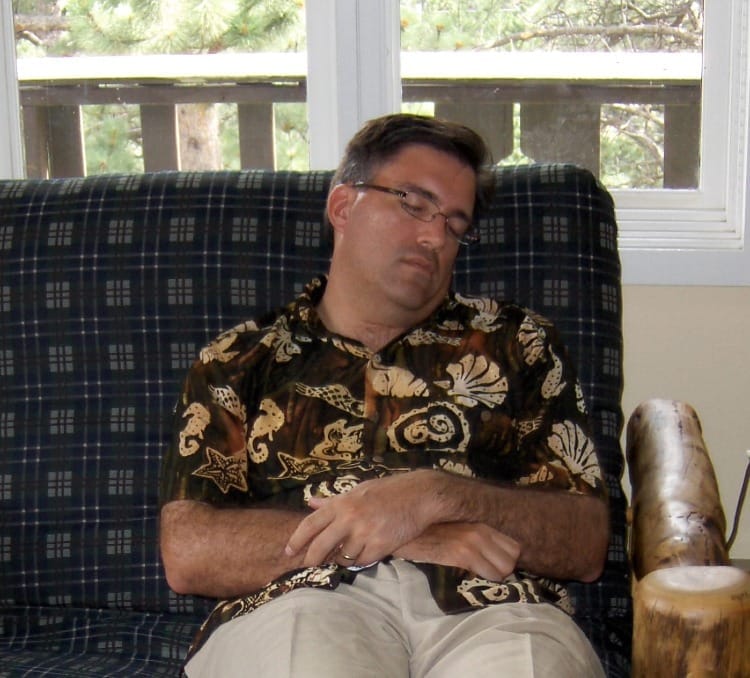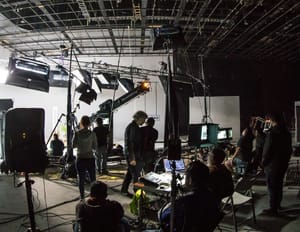Quick notes to help you grow your business in less time with less effort. . . sometime next week.
In this issue:
- Thoughts on Training
- Being Human
- Random Stuff
Thoughts on Training
- A CFO survey asking where they'd put extra dollars in their salesforce were twice as likely to add new people versus training current people. Upskilling is a momentum action. While a new person might turn out to be a blind squirrel that finds a nut, making your people better pays off faster.
- Instead of a sales workshop, invest in a course of study. Shared readings, pre-course prep, in person discussion, individual coaching, building internal case studies, with a pre and post-assessment over the course of 3 days, a month break, another 2 days of discussion, including a senior partner discussion on the last day, will not only raise competency, it will make it stick.
- The problem with training to change behaviors is the restraints that keep them from happening now are still in place when the trainee gets back to the office. Make environmental changes at the same time training takes place so the new behavior's momentum has a chance to build when they get back.
- George Bernard Shaw said “He who can does; he who cannot, teaches.” What gets lost in that saying is how difficult it is to teach. After sitting through a random sampling of trainers at a conference, I'm reminded that finding a great trainer is not easy. Anyone can teach, few can teach well.
Being Human - Release the pressure in your proposals
"Pianos, twinkles, the odd bit of rocking out, gentle vocals, beauty, no Radiohead comparisons, millennial tension, technology themes, relaxing, intelligent, nice, well worth your money so go out and buy it." – Drowned in Sound, May, 2000

Do you know the 2000's band, Grandaddy? I'm learning they aren't as well known as I once thought. They're back on my radar because it's the 25th anniversary of their album, The Sophtware Slump. I was on airplanes a lot when it came out and the album was on repeat on my brand new iPod, making it one of my favorites.
In making the album, the band's leader, Jason Lytle, wanted to, as he said, "release the pressure" when he gave it to the label. After slaving over the music for a year, he didn't want the suits at the label to fast-forward through the work and pass quick judgement. After completing the album, the band celebrated the finishing of the album and recorded a bunch of joke songs, as he put it. Then he had an idea.
He sent in the joke album instead of the real thing. Then he went dark for a few days. He imagined this would set off a panic at the label. Then, when he sent them the real thing they'd be so relieved that it would take the pressure off. He was right. As he tells the story, his label contacts were almost fired as they frantically tried to reach him. It went on to be released to critical acclaim, selling over 100K copies.
This tactic, his "release the pressure" tactic, is the same principal behind the advice to giving options in your proposals. It takes the pressure off any single solution you are suggesting, and gets your prospect to think about the best way to work on the problem. Instead of the pressure of, "do we do this? Yes or no?" it becomes a more relaxed, "what's the best way for us to proceed?"
As an old sales manager once told me, "offer something they can say no to. It gives them control."
If it worked for the brains behind the least-well-known-best-album-you-may-not-have-heard-of, it will work for you. I swear.
Random Stuff
“Attention is vitality. It connects you with others. It makes you eager. Stay eager.” ― Susan Sontag

Travel is fun. Business travel sounds like fun. Early in my career, business travel was conferences and occasional trade shows, maybe four or six trips a year. In a later decade it was every other week for three to four days. Near the end of that period the bloom was off the rose. I loathed travel and as each trip approached I'd feel a dark mood descending. Yep, this guy had a bad attitude.
I thought about this yesterday as I finished a quick business trip to a conference. My job was to hold down the last spot of the day in the main room. I was the only thing between the attendees and their free drink tickets. I didn't expect much attendance and even less participation, but the room was full. It turns out my session counted for continuing education credits, so there was an incentive to be there. My participation guess was right on though. Good sized crowd to laugh at my jokes, but sleepy. The meeting was broadcast to a wider audience too, which I can only assume had their heads down on their desks as they listened.
I know the feeling. Listening to a lecture or presentation when that little bit of warmth crawls up the back of your neck and your eyes get heavy. The worst I had it was recovering from an injury in college. I went to class with the best intentions, started diligently taking notes, but hopped up on Ibuprofin. Next thing I knew my classmates were getting up to leave and I would be pulling my head off the desk leaving a drool spot. Probably snoring too. Goodness knows what the instructors thought. I'm sure I retained something, but that semester was a blur.
One gentleman in the front of the conference room looked to be having a similar experience. Five minutes into my talk his arms were crossed, his chin was in his chest, and he was out. Others were sleepy eyed, but most were engaged so I pressed on.
After my time was up, the usual number of people came up to make comments and ask questions. One was Mr. Sleepyhead. When his turn came I thought, "oh, this should be good." He told me he was a professor at Dayton U. and then launched into a very insightful commentary on two of my points. Holy cow! He was listening? Totally impressed.
Maybe my instructors thought the same thing when seeing me wake up myself up with a snort, looking around their classroom in confusion. I mean, I'm sure I could have been insightful if they had asked. Almost positive the more I think about it.






